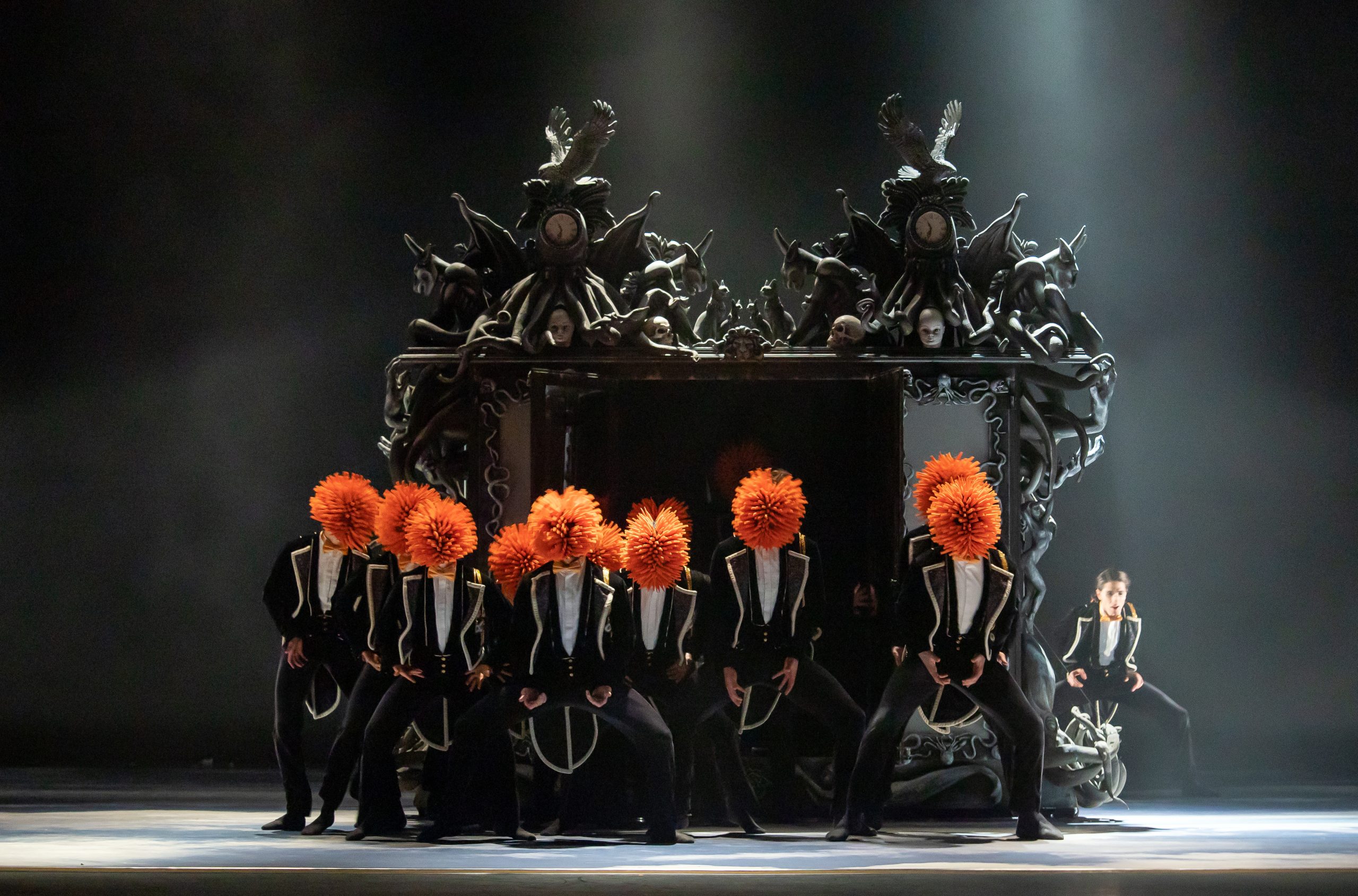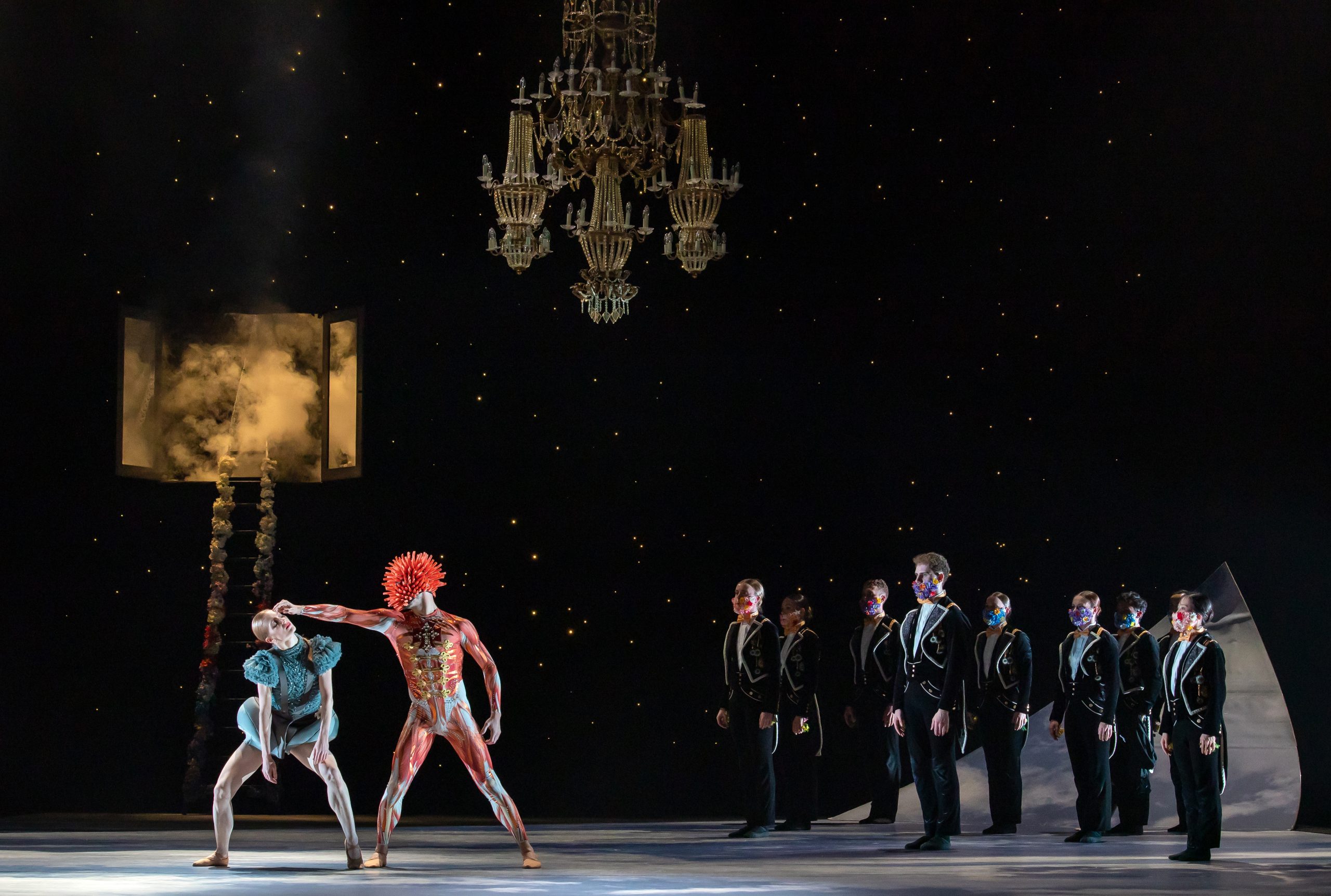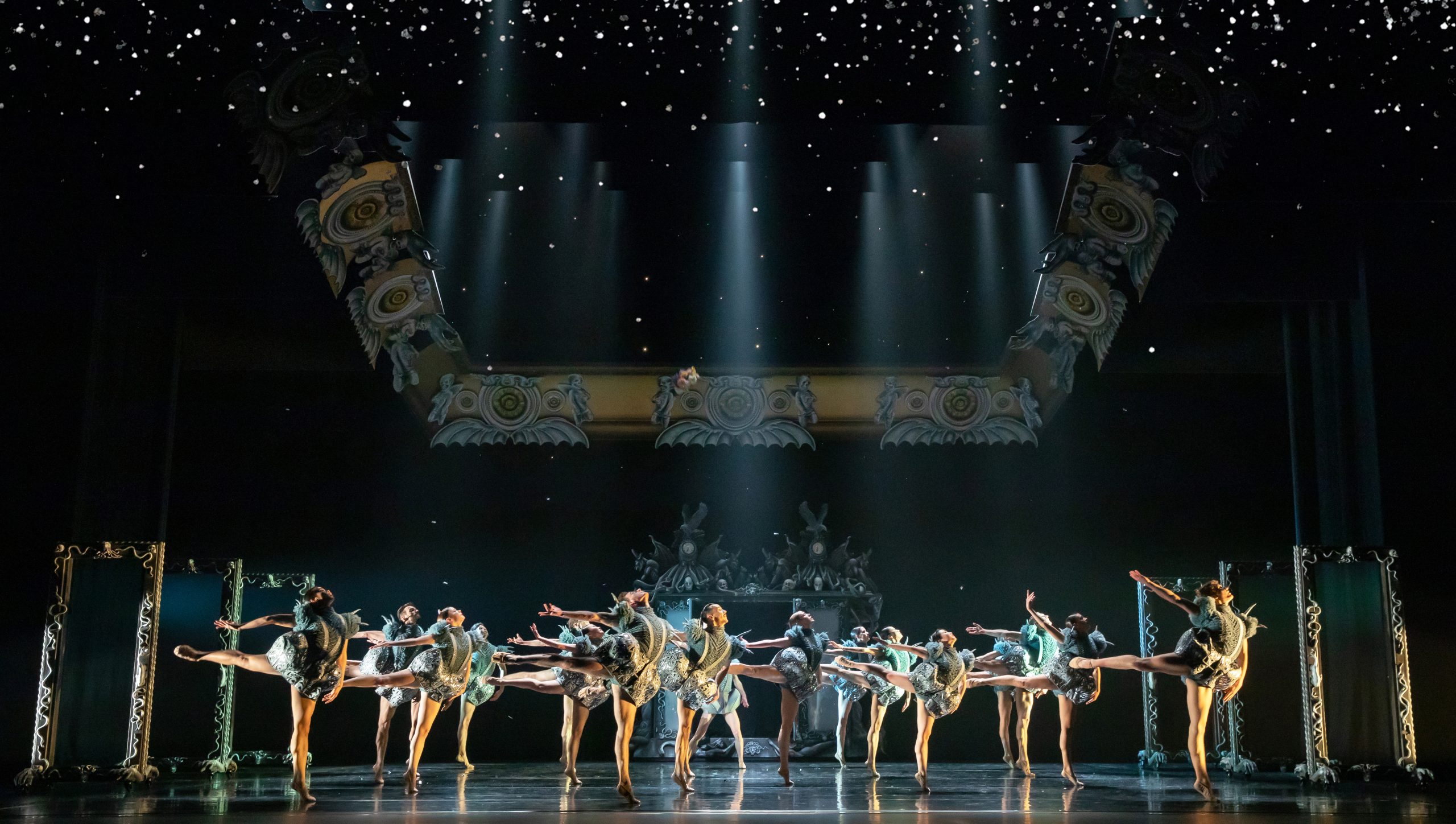The Nutcracker that Introdans presents as a family show does without the usual Christmas trees, gifts, and ballerinas on pointe shoes. In this version, Tchaikovsky’s indestructible music forms the foundation for the journey of an insecure girl searching for her identity. The inventive choreography is supported by spectacular design.
For seven years, Jeroen Verbruggen’s Casse-Noisette (2014) was one of the major crowd-pleasers of the Ballet du Grand Théâtre de Genève. However, when a new management took over, the Swiss company unceremoniously discarded the breakthrough ballet of the Flemish choreographer. Roel Voorintholt, artistic director of Introdans, was eager to add the work to his popular series of family performances, which had previously included updated versions of Carmen and Swan Lake. With Verbruggen’s Nutcracker, the Arnhem-based company brought in the largest production in its history. The extravagant costumes alone, created by the ultra-trendy designer duo On Aura Tout Vu, require several trucks to transport. The set pieces, also designed by the Parisian fashion house—including a gigantic chandelier—are anything but compact. The design is undeniably impressive. A visual centerpiece is a cabinet that serves as a portal between the world where the insecure teenager Marie tries to hold her ground and the universe ruled by the magician Drosselmeier, populated by masked creatures. Anyone who thinks of IKEA upon hearing the word “cabinet” is entirely mistaken in this case. This cabinet resembles a mausoleum, richly adorned with skulls, snakes, and winged monsters.
The dark, Gothic design not only evokes the film oeuvre of Tim Burton but also Verbruggen’s interpretation of the character Drosselmeier seems inspired by Jack Skellington, the Pumpkin King from Burton’s holiday classic The Nightmare Before Christmas (1993). The movements of Drosselmeier (powerfully danced in the performance I saw by Jillis Roshanali) and his creatures are grotesque, with knees turned far outward and skeletal limbs flapping sideways. A clever touch is the musical association of Drosselmeier and his companions with the dramatic spectacle music, which in the original ballet was reserved for the battle between soldiers and the Mouse King.


